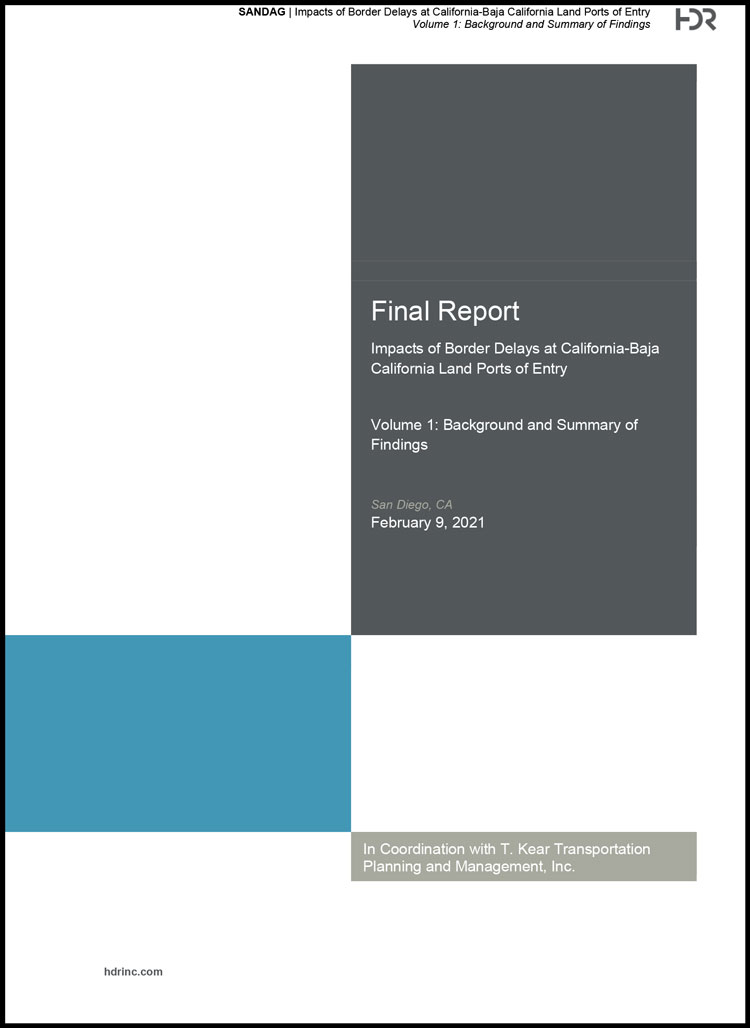New Report: Long Lines at Border Hurt Economy & Environment

A new report that studied the impacts of long US-Mexico border wait lines finds that the delays cost the local economy and negatively impact the environment on both sides of the border.
The study found that annual economic losses stemming from long lines cost California and Baja California communities more than $3.4 billion in lost economic output, more than $1 billion in lost wages, and more than 88,000 lost jobs, and compares current wait times with reduced delays in the future if planned border improvement projects are completed.
“In general, future planned capacity expansions at San Ysidro, Otay Mesa, Otay Mesa East, and Calexico East can accommodate the expected northbound and southbound traffic through those [Ports of Entry] and therefore delays decrease significantly across scenarios for these [Ports of Entry] after the improvements are built,” the report concludes.

The Impacts of Border Delays at California-Baja California Land Ports of Entry report, conducted by the San Diego Association of Governments (SANDAG), the Imperial County Transportation Commission (ICTC), and the California Department of Transportation (Caltrans), reviewed “more than 11,000 surveys on border-crossing behavior and characteristics”, “more than 12,000 direct measurements of border-crossing times for passenger and commercial vehicles throughout the six land ports of entry located along the California/Baja California border region”, and “20 interviews with businesses located in the California-Baja California border region with significant links to the other side of the border to assess, qualitatively, the impacts that delays at the land ports of entry have on their operations and revenues,” according to the report.
The report also reviews the environmental impacts of the traffic delays that could offset the reduction in smog from newer, cleaner cars in the future by creating unnecessary pollution as more cars idle for longer periods of time if the expansion projects are not completed.
“In terms of air quality/emissions results, the study finds that the planned infrastructure improvements and policies to expand capacity are needed by 2025 and 2035 so that growing delay and queuing do not overwhelm emission reductions derived from the lower polluting fuels and more efficient vehicles,” the report finds.
The future improvements reviewed in the study include significant border crossing capacity improvements in year 2025, such as the additional Port of Entry (POE) at Otay Mesa East, improvements at existing POEs like Calexico East with the expansion of the All-American Canal Bridge, plus future transit and bicycle/pedestrian access improvements in the vicinity of the POEs in years 2025 and 2035.
The report also assumed that Otay Mesa East POE capacity is planned to be phased; at opening day it will be in a configuration of five lanes in each direction (called 5×5) and expanded to a 10×10 configuration at a later date
Read the full report via the SANDAG website here.






